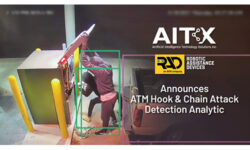Hot Seat: Selling Remote Video Monitoring

Jerry Cordasco
Vice President of Operations
G4S Technology
Remote video services, such as remote video monitoring and remote guarding, are providing newfound recurring revenue streams for independent installing security contractors. Although the marketplace continues to develop, providing these advanced video services is not without challenges, says Jerry Cordasco, vice president of operations for the G4S Technology security monitoring center in Burlington, Mass. Cordasco joins the conversation to further explain.
Which market verticals are ripest for remote video services?
Where we are having success is predominantly for outdoor applications and in areas where we are protecting the storage of valuable assets. The setting is typically a fenced perimeter, so for example, building materials, boats, cars, RVs, solar cells, power sub-stations, etc. The typical electronic solutions, such as fence sensors or outdoor motion detectors, are expensive and prone to false alarm. The alternative is to put one or more human security officers in there after hours and perhaps even 24/7, but that cost can be prohibitive. Much of the value of remote guarding can be found by combining the deployment of security officers with advances in technology to better support the officers and improve the response time to a threat.
Where we see successes and where we are trying to focus on are to some degree different. There are certain markets that are almost no-brainers. If you focus only on those then that is quite a limited segment of the marketplace. We are focusing on how the benefits of remote guarding can add value to other markets through improved security and cost reduction, something on every end user’s mind these days.
Which targeted markets are proving difficult?
We have a defined set of target markets that we are currently focusing on for new business. In some vertical markets, the [end users] are so entrenched in the concept of only using guards that they are not comfortable thinking a bit out of the box and moving away from that. The challenge is to get their mindset away from thinking only about security officers and more so about the benefits that can result from a combination of security officers and technology. In other cases, the end user has a risk but doesn’t realize the risk or doesn’t understand the value of the service relative to what they perceive as the risk.
When a customer has the idea they want to do their own monitoring, we are finding it especially difficult to get them to move away from that, particularly if they have made a significant investment in their own security command center. So in a mall or a hospital maybe they have an individual or two who are sitting in this room looking at a wall of monitors and they think that is a good thing. Our strategy is to help educate these users to understand that it is not always an effective way to provide security, both from a cost standpoint and from a pure security standpoint. It’s about changing that mindset of ‘we’ll just do it on our own.
So educating the end user falls to the integrator?
When you look at the market at large, most of the time the onus is on the integrator-dealer to explain what the service is and what the value is above and beyond using security officers. Someone has to sell this service and implement it. Right now this is the biggest bottleneck when it comes to accepting remote monitoring. In many circumstances, the integrators themselves don’t fully understand the service or how to apply it and therefore it becomes difficult to convince an end user to consider this option. Integrators are comfortable with traditional security solutions such as intrusion detection, electronic access control and recorded video. Remote guarding is a managed service that leverages those other technologies and it is taking some time for them to get their arms around that concept.
What fundamentally is remote video monitoring or remote guarding services?
Remote video monitoring is a combination of services, one of which is virtual tours. We connect to the cameras at a customer site and do a tour similar to what a guard would do on that site. These tours can be carried out at predetermined intervals according to the customers’ requirement. This can vary according to site, anything from every hour to just once a day. The tours enable us to look for both security and safety issues.
Another way we perform remote guarding is through what we call event monitoring or exception video. This simply means that on any given site there may be X number of cameras which are probably being recorded locally on a DVR/NVR. But when an alarm or event related to some threat occurs, the monitoring center is alerted and then we look at the cameras to verify the alarm and respond to that alarm. That alert can be a burglar alarm going off or the access control system being violated or the cameras themselves sending an alarm through the use of video analytics. Alarm verification is becoming a key for customers as they seek to prevent charges for false callouts by Police Departments. In addition to viewing the event, the monitoring center has the ability to interact with the site using two-way VoIP (voice over IP). This changes the service from being reactive to interactive and proactive.
A third service is video chaperones. An example of this is a case where somebody is leaving their office late at night; they are concerned about going out to their car, so they contact the monitoring center. We connect to the appropriate cameras, we make sure there is no one lurking around the parking lot and then we watch them as they leave the facility.
If you enjoyed this article and want to receive more valuable industry content like this, click here to sign up for our FREE digital newsletters!

Security Is Our Business, Too
For professionals who recommend, buy and install all types of electronic security equipment, a free subscription to Commercial Integrator + Security Sales & Integration is like having a consultant on call. You’ll find an ideal balance of technology and business coverage, with installation tips and techniques for products and updates on how to add to your bottom line.
A FREE subscription to the top resource for security and integration industry will prove to be invaluable.








